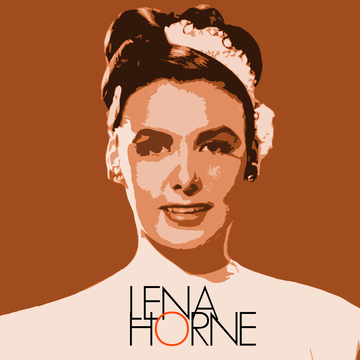She began performing at age six, and by 16 was singing and dancing at Harlem’s Cotton Club, where she became an acolyte of Cab Calloway and Duke Ellington. She performed with Noble Sissle’s Orchestra and Teddy Wilson’s big band. Horne’s movie career began in 1938, when she appeared in The Duke Is Tops. She won critical acclaim for her performance in Stormy Weather (1943), and for singing the movie’s title song. Although she was the first African-American woman to
[more]She began performing at age six, and by 16 was singing and dancing at Harlem’s Cotton Club, where she became an acolyte of Cab Calloway and Duke Ellington. She performed with Noble Sissle’s Orchestra and Teddy Wilson’s big band.
Horne’s movie career began in 1938, when she appeared in The Duke Is Tops. She won critical acclaim for her performance in Stormy Weather (1943), and for singing the movie’s title song. Although she was the first African-American woman to sign a long-term movie contract with a major studio (MGM), Horne’s films were shot so that her scenes could be cut out before been shown in the South.
An outspoken foe of discrimination, Horne was blacklisted in the 1950s for condemning racism, as well as for her association with Paul Robeson, a performer with Communist ties.
Her recordings include More Than You Know (1946), Lena Horne Sings Your Requests (1963), and An Evening with Lena Horne (1994). She was a 1984 Kennedy Center honoree.
[less]